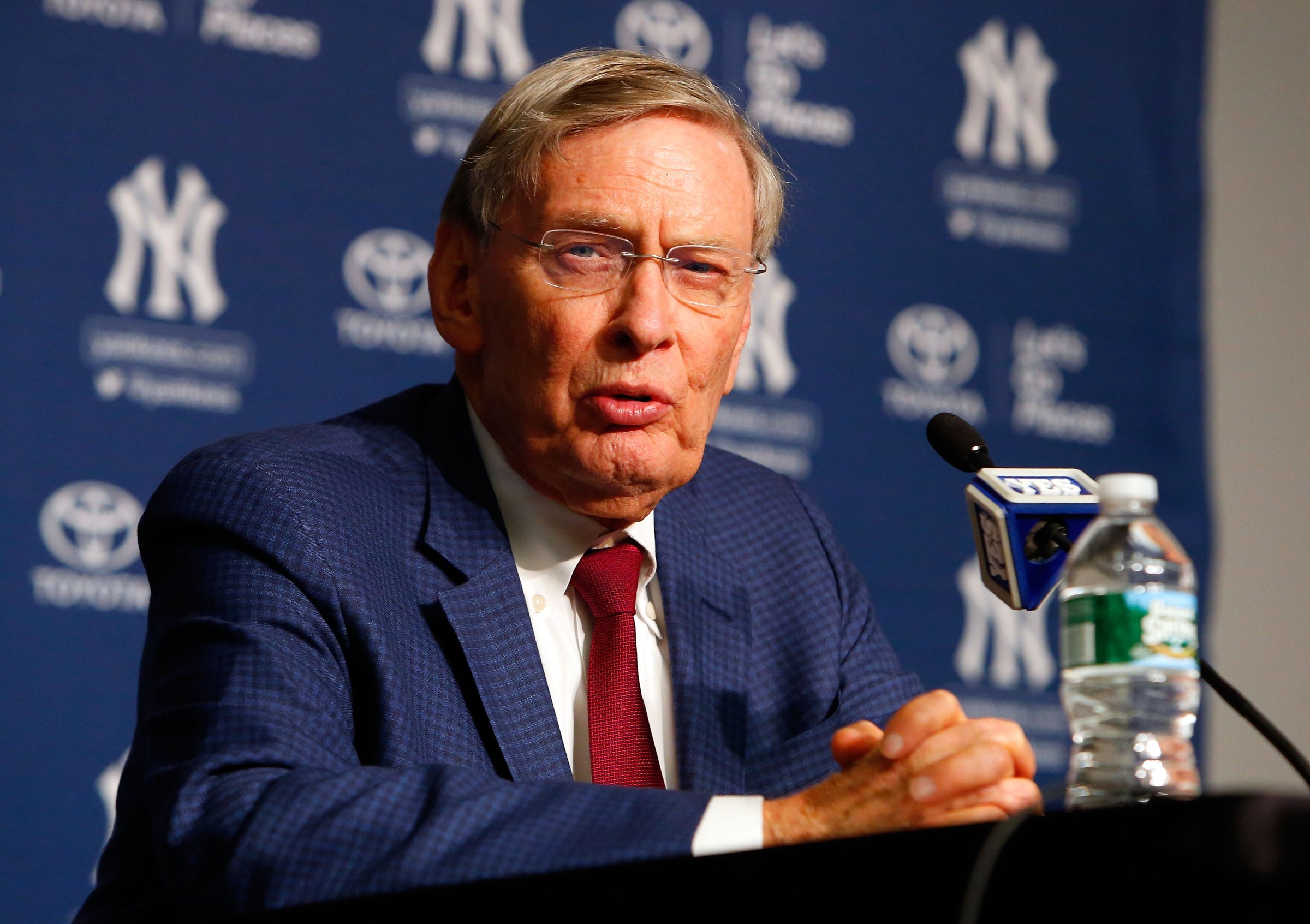
One thing everyone can agree on: It’s the right time for Bud Selig to hand over the keys.
Selig, baseball’s commissioner since 1992, officially leaves the job Saturday. Rob Manfred, a long-time deputy, takes over. Selig, 80, took baseball to a new place. He’s left his mark. Let’s see what the new guy can do. (Manfred seems fond, for example, of trying to speed up the game. That’s good news.)
Bud Selig was never the most charismatic public face of baseball. But his job was never to inspire. In sports, the players, and sometimes the coaches, do that. Commissioners are tasked with growing their sports for their bosses—the owners—and keeping the games fair. Baseball produces almost $10 billion in annual revenue; the game made just over a billion yearly when Selig took over. Local television deals, in particular, are flourishing. In a media world obsessed with “content,” baseball, with its 162-game schedule and hot-stove intrigue, benefits. Selig’s team was smart enough to capitalize on this: MLB Advanced Media, baseball’s tech engine, has minted millions. Interleague play, and the expanded playoffs, have been good for business.
As for fair play: The controversy over performance enhancing drugs has been picked over plenty. Whether or not Selig was willfully blind to the 1990’s steroid boom, it happened under his watch. Selig’s push for tougher drug testing wasn’t some heroic response. It was the only prudent one, and testing still has flaws. Remember, Alex Rodriguez may have copped to his 2010-2012 drug use. But he did not fail a test during that time.
Selig instituted revenue sharing, and even teams like the Pittsburgh Pirates and Kansas City Royals, hopeless during most of Selig’s tenure, eventually became winners. His hawkish approach to controlling labor costs contributed to the 1994 strike. Like steroids, the work stoppage stains his resume. But since that disaster, baseball has enjoyed two decades of labor peace. Selig deserves some credit.
He also deserves blame for one of the dumbest polices in sports: giving home field advantage in the World Series to the league that wins the All-Star game, instead of the team with the better record. This gimmick defies logic and fairness. Manfred should reverse it.
One of Manfred’s more serious challenges will be to bring more cultural cachet back to baseball. That unquantifiable spark, buzz, whatever you want to call it. The game consists of thriving fiefdoms, but lacks the national bonds we’ve seen with players in other sports, like LeBron James and Peyton Manning. Baseball’s gone hyper-local: You can obsessively watch your team daily, on all kinds of devices. Maybe Manfred will tap into some marketing magic to make more young people fall for Mike Trout, Yasiel Puig, and other emergent stars. Maybe he’ll push baseball beyond the bottom line.
That’s something Selig just wasn’t wired to do.
More Must-Reads from TIME
- Inside Elon Musk’s War on Washington
- Meet the 2025 Women of the Year
- The Harsh Truth About Disability Inclusion
- Why Do More Young Adults Have Cancer?
- Colman Domingo Leads With Radical Love
- How to Get Better at Doing Things Alone
- Cecily Strong on Goober the Clown
- Column: The Rise of America’s Broligarchy
Write to Sean Gregory at sean.gregory@time.com